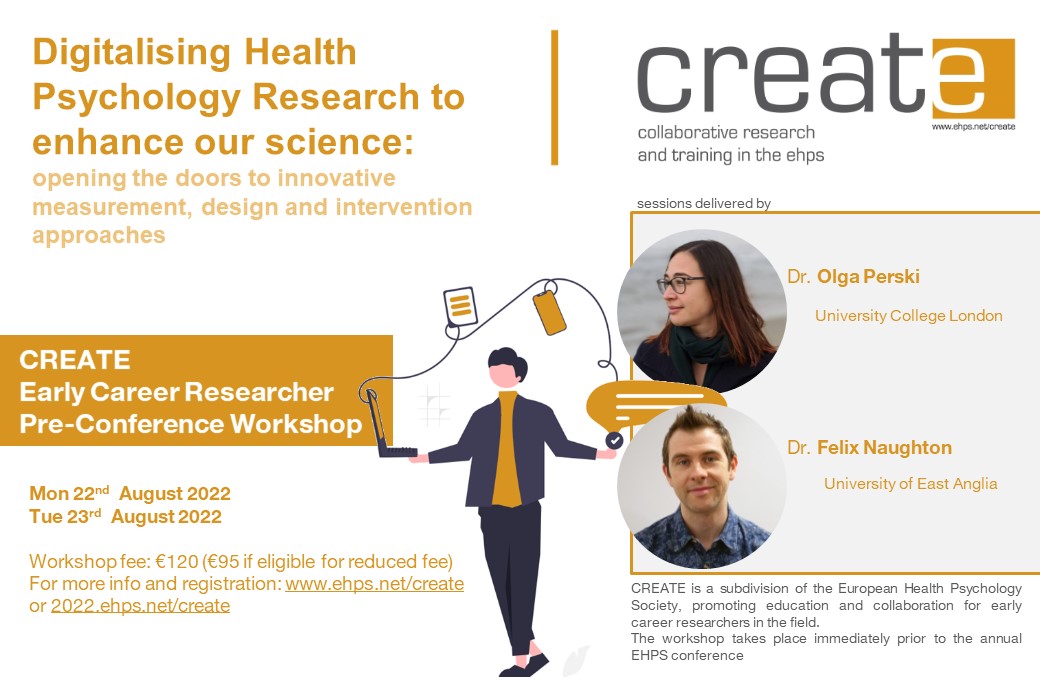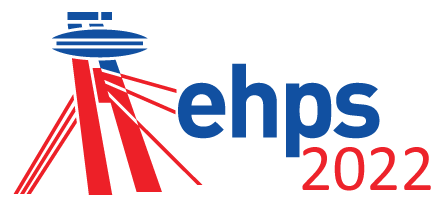CREATE
Early Career Researcher Workshop
CREATE organises interactive workshops each year. Prominent experts within the field of health psychology are invited to lead these workshops. The overall aim of these workshops is to enhance knowledge and skills of early career researchers working in Health Psychology.
The CREATE pre-conference workshop is a separate format from the conference workshops, and registration follows its own procedure.
Practical Information
Date: Mon 22nd and Tue 23rd of August 2022 (+ social activity Sun 21st of August)
Pricing: 120€ (95€ reduced fee; check whether you are eligible for the reduced fee here: https://ehps.net/fees/ )
Funding: A grant for workshop registration, conference fee, accommodation and travel is available. Find out more about eligibility and the selection process here: https://ehps.net/grants/ )
Application: Places are limited and are in principle given on a first come, first served basis. But please note that priority will be given to Early Career Researchers if applications exceed available places. In order to be accepted for the workshop, you will need to be a member of the EHPS. Click the link below to sign up for the workshop:
https://nuigalwaybusiness.fra1.qualtrics.com/jfe/form/SV_6xsBTMuc7I0HIzk
Applications are closed.
Digitalising Health Psychology research to enhance our science: opening the doors to innovative measurement, design, and intervention approaches
This workshop will be focused on the use of digital tools and technology-driven approaches to enable researchers to better capture, assess, evaluate and intervene on psychological and behavioural phenomena related to health. Throughout this interactive workshop we will draw on cutting edge examples and explore best practices as well as providing opportunities for discussion, exploration and development of your own research ideas related to this area. During the two days, topics covered will include:
Measurement; Ecological Momentary Assessment (EMA) and innovative tools for data collection (e.g. measurement apps, smartphone sensors, wearables)
- Design; observational and evaluative intensive longitudinal designs (including N-of-1 designs) and novel designs for evaluating digital interventions (e.g. MOST, SMART, micro-randomised trials)
- Digital and hybrid interventions; the use of tailoring, engagement considerations, just-in-time adaptive interventions, use of machine learning and integrating digital and practitioner-delivered interventions
- Practicalities of digitalising research; introduction to free tools, practical examples and consideration of implementation and maintenance/sustainability of interventions, and integrating automation into research

